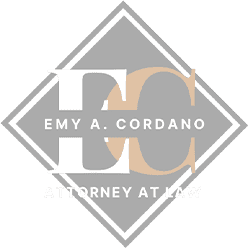Division of property is a complicated matter, especially if you are getting divorced in Utah, where there is a legal doctrine known as “equitable distribution” that applies when two spouses are trying to divide property in a divorce. Just how complicated property division is in Utah is evident from the number of calls and emails our Salt Lake City equitable distribution attorney Emy A. Cordano receives in a single week.
The term “equitable distribution” is confusing at best and contradictory at worst. Many people in Utah wrongly believe that “equitable” means equal, but this is not the case. Utah law requires an equitable division of marital property, where equitable means “fair.”
Practice shows that division of property in Utah is rarely equal, but with help of an experienced property division attorney in Salt Lake City or elsewhere in Utah the likelihood of getting a fair and reasonable outcome in the division of property is much higher than if you were not represented by a divorce lawyer.
How equitable distribution in Utah works
In Utah, if you and your spouse can agree to a fair and reasonable division of property, the court will accept both spouses’ decisions as long as it’s fair and reasonable. If you, on the other hand, cannot agree without getting the court involved, the marital estate and other property will be divided within the Judgement of Divorce by the district or family court in Utah.
Our equitable distribution attorneySalt Lake City warns that many things can go wrong if you make it predominantly the prerogative of the court to divide your marital property, as neither you nor your spouse will have much say in the court’s decision. In fact, property division cannot be revisited or altered after the order has been made, though there are exceptions.
How Utah courts divide property in divorces
What makes an equitable distribution in Utah so confusing and unpredictable is that judges in the state almost never rely on some fixed and definitive rules when it comes to dividing property in a divorce. Instead, judges in Utah enjoy discretion to take into account all factors and circumstances of each marriage before issuing a Judgement of Divorce.
But in no way does it mean that judges in Utah have the freedom to divide marital property however they see fit. Courts still consider a variety of factors in equitable distribution such as:
- The length of the marriage;
- The age and health of both spouses;
- The employment occupations of both spouses;
- The sources and amount of each spouse’s income;
- How the spouses acquired the marital property;
- Post-divorce medical needs and childcare costs faced by each spouse;
- Each spouse’s level of education and earning potential; and
- The economic impact of the divorce on each spouse.
Salt Lake City property division attorney Emy A. Cordano also reminds our readers that if there is any joint debt or liabilities you or your spouse incurred in the course of the marriage, the court will decide that either one or two spouses are responsible for paying it back.
As a rule of thumb, for long-term marriages, equitable distribution means a 50-50 split, while for short-term marriages, Utah courts strive to restore each spouse’s standard of living before the marriage.
Given that division of property is such a complicated and unpredictable matter, it is highly advised that you consult with a property division attorney in Salt Lake City or elsewhere in Utah. Contact Emy A. Cordano to get a legal consultation today. Call at (801) 901-8159.

